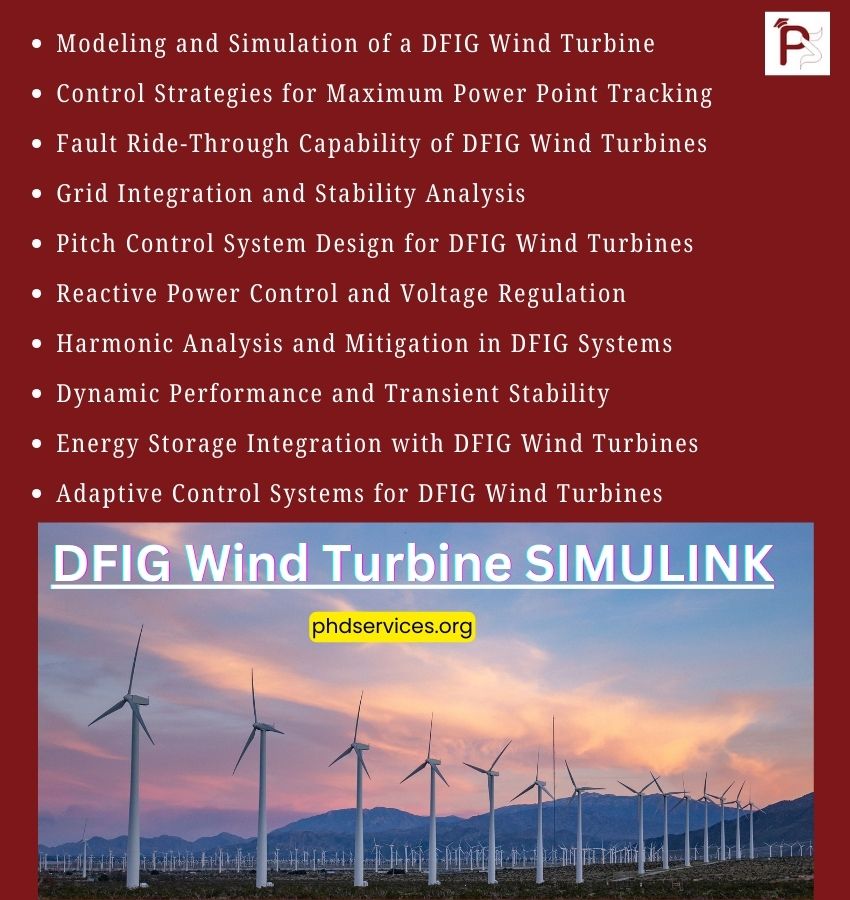DFIG is a prominent approach that stands for Doubly-Fed Induction Generator and assists to enhance system effectiveness and minimize cost in various aspects. Relevant to a DFIG wind turbine, we suggest several interesting project plans that focus on utilizing Simulink tool:
What are good MSc research topics in wind power generation?
Wind power is examined as one of the major renewable energy sources, which is employed in diverse environments for various purposes. In the domain of wind power generation, numerous topics and ideas have evolved in a gradual manner. On the basis of this domain, we list out a few effective and advanced research topics that could be more appropriate for your MSc thesis:

Check out a few of the DFIG Wind Turbine Simulink Project Ideas and let us help you achieve excellence at every step of your research journey. Keep yourself informed in your field by reaching out to us – we offer prompt responses via email, phone, or Google Meet. Feel at ease to get in touch with us.
